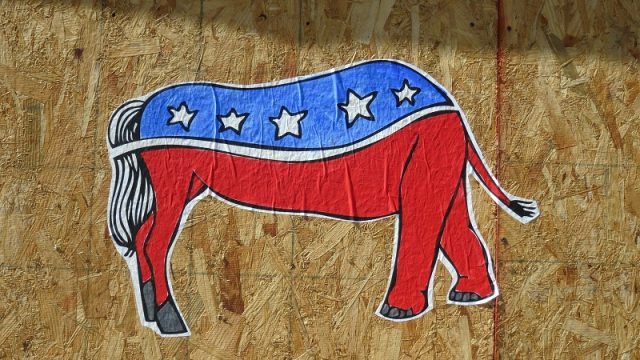Local Politics Are as Partisan and Ideological as Any Other Kind of Politics, We Just Pretend Like They Aren’t

Earlier this year state Rep. Scott Louser, a Republican from Minot, introduced legislation which would have allowed local elected leaders to identify themselves with a political party on the ballot.
It was permissive legislation, which is to say that nobody would have been forced into an affiliation. Local candidates, much like legislative and statewide candidates currently, could have chose to identify as independents. Unfortunately, the legislation was defeated amid a lot of hand-wringing about injecting “partisan politics” into local governance.
Which is a bit of a joke given how often we see local governments these days passing resolutions and policies – things like “inclusion resolutions” and renaming Columbus Day – which are explicitly ideological.
For local leaders to tackle those sort of divisive, hot-button issues which are far outside the scope of fixing pot holes and collecting garbage while simultaneously taking a sanctimonious stand against partisan politics is hypocrisy. Pure and simple.
Reporter Sam Easter has a lengthy article in the Grand Forks Herald exploring the issue as it relates to local politics in Grand Forks. He asked several of the local leaders how they would identify if the aforementioned legislation had passed.
Here are the answers he got:
Particularly interesting is the answer from Councilwoman Mock. She has been outspoken in her opposition to this legislation, but was named as a headliner for a local Democratic fundraiser earlier this year. Mock, whose husband is Democratic state Rep. Corey Mock, claimed her name was included mistakenly.
I’m not sure how someone so explicitly and publicly opposed to identifying with a political party gets accidentally included in an event like that, but I’ll leave it to you readers to decide what happened.
What I’m wondering is why there’s so much opposition to local candidates identifying with political parties?
It’s not really fair to say that the opposition comes from the left – this bill failed in the legislature, after all, where there aren’t enough Democrats to defeat any legislation – but it’s my sense that the strongest opposition comes from that side of the ideological spectrum.
“One of the things that I really like about local politics is that it is nonpartisan,” Grand Forks Councilman Bret Weber told Easter. “I think that’s part of why local politics are functional, and national politics are so dysfunctional. In fact, I’m not sure why state legislators need to have a letter after their name.”
National politics haven’t always been as dysfunctional as they are now. In fact, one could argue that a lot of the present dysfunction has stemmed from a weakening of the national political parties and their ability to enforce order on their members.
There is actually a point to political parties. They’re organized, however imperfectly, around a platform of ideas and philosophies. The party exists to elect candidates at all levels of government who will advance that platform.
Plenty of you, on both the left and right, will gripe that the D’s and R’s aren’t particularly good at staying true to their platforms, but questions of ideological sincerity are more about the quality of present leadership not the utility of partisan organization.
There is nothing wrong with voters preferring candidates who take a specific sort of approach to governing, whether it’s on the city council or in the U.S. Congress. Some may sneer at this as partisanship, but others might say it’s transparency.
Partisan affiliations (or lack thereof) can tells us some useful things about a given candidate.
In a perfect world we’d all be paying close attention to how our elected leaders govern, and evaluate them at the ballot box based on those considerations. But our democratic form of government is sprawling, and it’s hard even for tuned-in citizens to pay close attention to the decisions all of their elected leaders are making. Plus, when someone is running for office for the first time, they have no governing track record anyway.
Partisan affiliations are a good, if far from perfect, short hand for knowing what candidates stand for. Local candidates should be allowed to have them.




